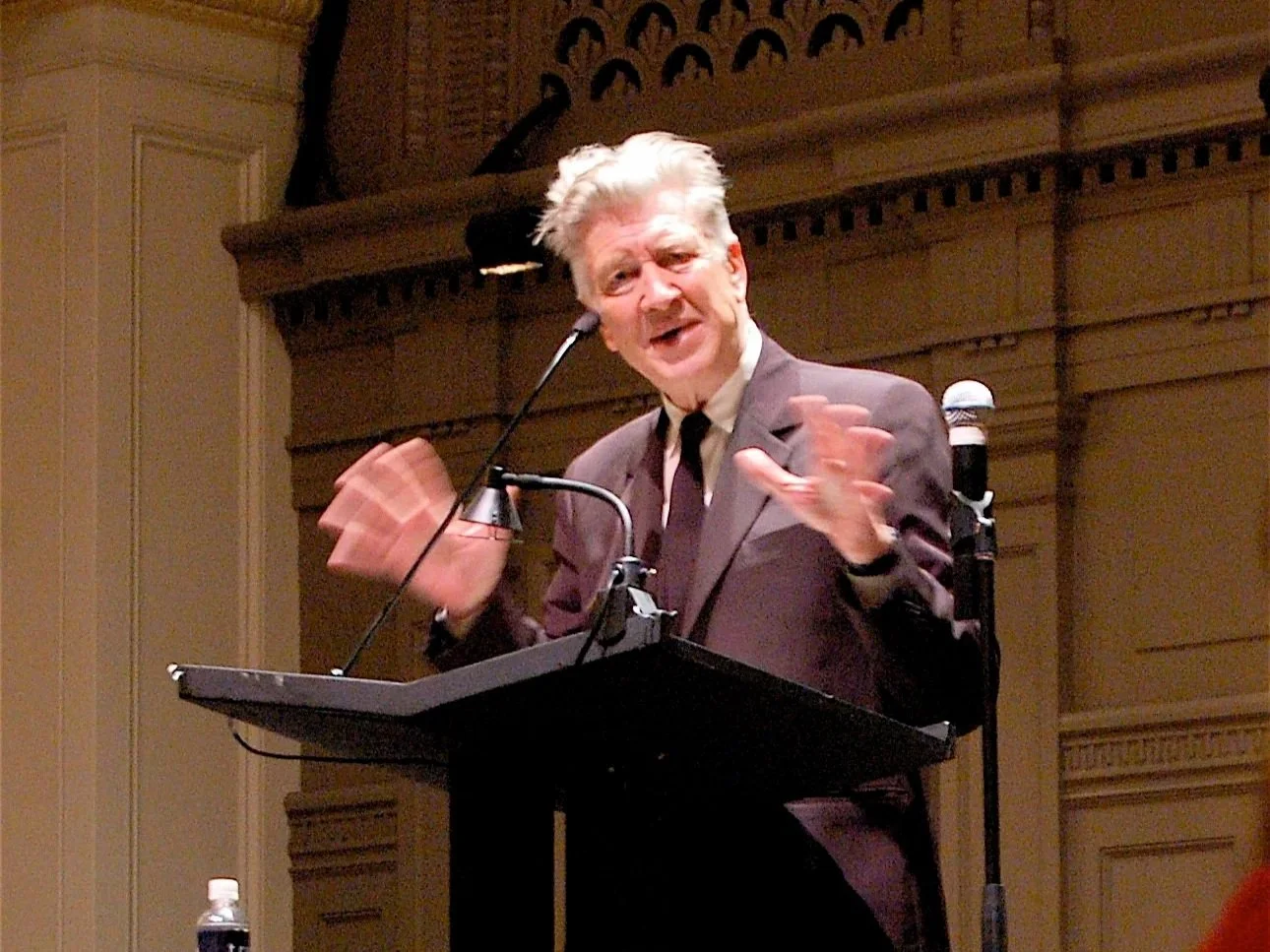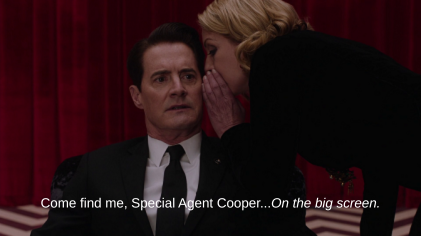
Twin Peaks: The Return!
-
Calling Twin Peaks Fans...
A few of our Creatives are David Lynch fans (understandably), so they’re excited to share with you this li’l Seattle episode fest. We’ll have a bit of history, reviews, and final thoughts on the epic cult classic that put the PNW on the map for thriller fans nationwide.
Keep your eyes peeled here!
-
![David Lynch at a podium]()
Twin Peaks: The Return (preview)
Izzy provides the history of Twin Peaks’ impact, Lynch’s involvement, and why we love that it set up the PNW as the premiere thriller/horror setting.
-
![Twin Peaks woman whispering in Agent Cooper's ear]()
NWFF Kickoff with Episodes 1-2
Kristel reviews her love for Lynch’s work and subsequent vibes of attending the first screening of Twin Peaks: The Return.
-
![woman in black dancing with her hands in the air, from Twin Peaks: The Return]()
Twin Peaks: The Return, Eps. 5 and 6
Gray watched episodes 5 and 6 at NWFF through the lens of a person going through it IRL, blind to Twin Peaks fandom.
-
![SIFF Uptown marquee "Gotta light?]()
Returning to The Return
Izzy shares final thoughts on why they keep coming back to David Lynch’s local masterpiece.


There are seasons when life gets so loud, whispering stops working. You stop tiptoeing and walking on eggshells around your own truth. You stop shrinking to make other people comfortable. You stop pretending you're “fine” when your soul is over there banging pots, trying to be heard and have that hurt validated. At some point, you match the volume. That’s where I’ve been — healing OUT LOUD. Not in a reckless way, not in a messy way, but in a “my heart said testify” kind of way.
Crow’s Nest Comics, formerly the beloved Outsider Comics shop of Fremont, has made the move to a much cozier location in Central District, just a tiny walk from I-90 (or the 7 or 554 bus will get you just a block away). Though the shop has moved and changed names, they are still offering their warm, inviting atmosphere, stunning collection, and commitment to accessibility, all from a better location.







![The Divided Line: Caleb [Part 1]](https://images.squarespace-cdn.com/content/v1/65456cf1d440cc19dd37c744/2ffbf9f8-6e52-46fa-94c9-7a0eeecc9b13/Umut_Sarialan+Pexels+Cropped+-+Calista+Robbins.jpg)



